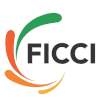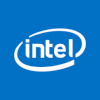When physical security features are cloned in the public domain, brands are often advised to update new features often with more combinations such as QR codes, CDP-based QR codes or QR codes with foiling. This experimentation is continuing since last multiple decades and problem remains unsolved. However, these security features as temporary solution, as those again gets duplicated and there is no concept of performance liability. Consequently, brand owners are compelled to invest substantial sums in upgrading security features over and over again and investing in manual ground investigation as these features are fundamentally weak leading to increased costs without solving the problem.
Financial Liability: A legal obligation to make payments, such as penalties, or compensation if security features get cloned in the market or in the public domain. It is silent testimony for the robustness and reliability of its security solutions. This commitment not only showcases the company’s confidence in its security features but also reflects solid fundamentals.
By offering financial liability, the company provides clients with a tangible assurance of protection against potential breaches and eventually counterfeiting. This proactive stance not only enhances the company’s credibility but also fosters trust among consumers and partners, distinguishing the brand like Linksmart in the competitive market. If solution provider has hesitation in underwriting performance liability it directly reflects the vulnerability to clonability, really.
Ultimately, financial liability serves as a litmus test for the credibility of security features, demonstrating a company’s unwavering confidence and commitment to safeguard its clients’ interests.
Contact Us:
Nasscom CoE IOT KEONICS
#29/A(E), 27th Main, 7th Cross Rd ,1st Sector,
HSR Layout, Bengaluru, Karnataka
E: info@linksmartdna.com
M: +91-8660917592
Global Recognitions
Social Links
Privacy Policy Link
Latest Post
- But All These Works Only When There Is High Consumer Authentication. February 27, 2025
- Whether Detecting Physical Duplicates Copies Can Render A Performing Authentication Technology? February 27, 2025
- Money & Motivation Can Break Anything..!! February 27, 2025
- Can You Suggest, Quickest Method To Judge The Credibility Of Non-clonable Security Features? February 27, 2025






